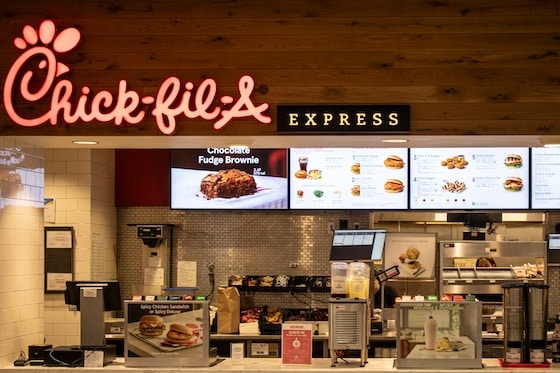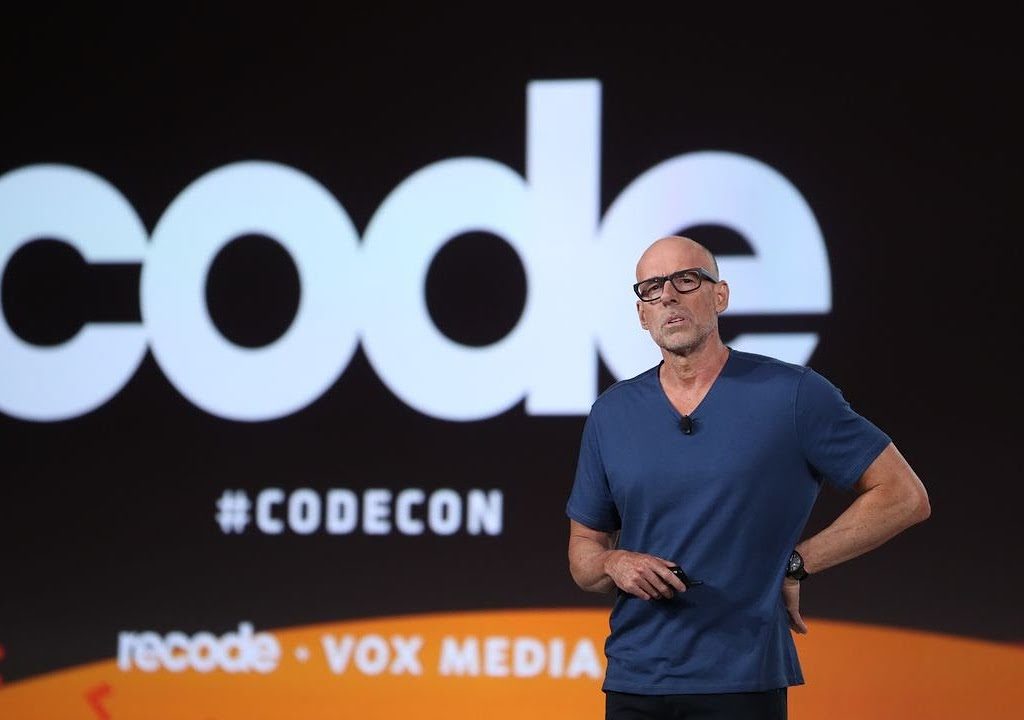This is the latest in LSA’s Video Vault series. Running semi-weekly, it examines selected conference talks including embedded video and key takeaways. Speakers’ opinions are their own. Check out the entire series here.
What can we expect from the worlds of tech and media over the next year? Oddsmaking in tech is always tough but NYU professor Scott Galloway has a decent track record in his perennial predictions. Among his latest: recurring subscriptions will rule, and your next healthcare policy could come from Amazon.
Speaking at the recent Code conference (video below), the always-provocative Galloway asserts with evidence that the market favors recurring bundles, or what he calls “rundles.” A modern spin on universally-coveted recurring revenue, these are valuation boosting subscriptions like Netflix and Spotify.
That’s nothing new as a staple of the on-demand economy and age of streaming. But the principle is moving to myriad verticals and product classes. And it’s not just the strategy to lock users into a recurring subscription but to do so with a larger bundle of features to sweeten the pot, a la Amazon Prime.
“The marketplace likes fidelity over cereal dating… The companies that are outperforming their peers have entered into a monogamous relationship with their consumer set. Even companies such as Restoration Hardware figured out a way to get half a million people to pay a hundred bucks a year. This is the only way you can get your revenues top line up only 14 percent but get your stock to double… I think that’s where the world is headed.”

This is conceptually similar to and supportive of Modern Commerce Monitor data we examined yesterday that show SMBs prefer one-stop shop services. Though Galloway cites consumer behavioral economics, SMBs have long mirrored consumer buying habits as they’re mostly everyday people.
The way this could start to unfold is that the world doubles down on the rundle principle and we’ll start to see it in other places — everything from travel to medicine. That makes lots of economic sense as we examined yesterday in light of Stripe, as companies have to diversify and grow ARPU as they mature.
“We’re going to digress to a series of airline alliances in the consumer world — one for your luxury, one for your fitness. I’m flying to Cannes next Sunday on an inferior airline called Air France and the reason I do it is I’ve entered into a monogamous relationship with Sky team because I love Delta… Some brands that could do this: I want Nike to take over my fitness or my knee replacement. I want them to take over ingredient branding of hotels because I like to work out and be healthy on the road and they have the credibility to do that.”
Speaking of diversifying and constantly seeking out new revenue sources, there’s no better exemplar of that principle than Amazon. Its continued conquest of adjacent verticals won’t stop anytime soon. Next up could be healthcare. It’s ripe for disruption, and Amazon is the likeliest candidate to jump on it.
“The business story of ’19 is going to be big tech in healthcare. The definition of an industry that can be disrupted is they raise their prices faster than inflation without a correlated increase in productivity… so the question is which big tech firm is going to succeed in healthcare… nobody’s going to tell Facebook they have diabetes or an STD… Apple is the odds-on favorite but I don’t think it’s going to be the one because it’s unfortunately it’s saddled with investors that expect profits. The biggest healthcare company in the world within five years is going to be Amazon.”

Meanwhile, what are other areas to overinvest or underinvest? Galloway goes through several of them (video below), but a few standouts are AI, IOT, VR, and 3D printing (underinvest); and voice and messaging (overinvest). Though bordering on “get off my lawn,” territory, it’s a well-educated position.
“My favorite was 3d printing — super fast inexpensive high-quality products… America and Europe have the ultimate 3d printer, it’s called China. The Internet of Things: your pool and your blender don’t need to speak to the internet. And wearables… consumers only wear something on their face that they think makes them more attractive to other mates. Google Glass is not a wearable, it’s a prophylactic.”
Another prediction is the outcome of Tesla. Though detached from typical LSA coverage, we’ll relay Galloway’s thoughts here for fun and for overall business lessons. He believes someone will acquire the sometimes-wayward ship, and it will likely be a tech company. There are great things there to salvage.
“Since we made this prediction on Pivot three months ago, the stock is down 25 percent so the question becomes who buys them… it will most likely be a company from tech. I do think there’s value there, it’s a better product, it’s an amazing brand. So if the question is if [Elon Musk] is an individual who’s been good for the world and is a genius and this is a fantastic product; or is this a company that’s going to go out of business, the answer is “yes.”
See the full talk embedded below, and stay tuned for more LSA video coverage in the semi-weekly Video Vault series.

Be the first to hear news about Local, events, and research. Click here to subscribe for updates from the LSA.




